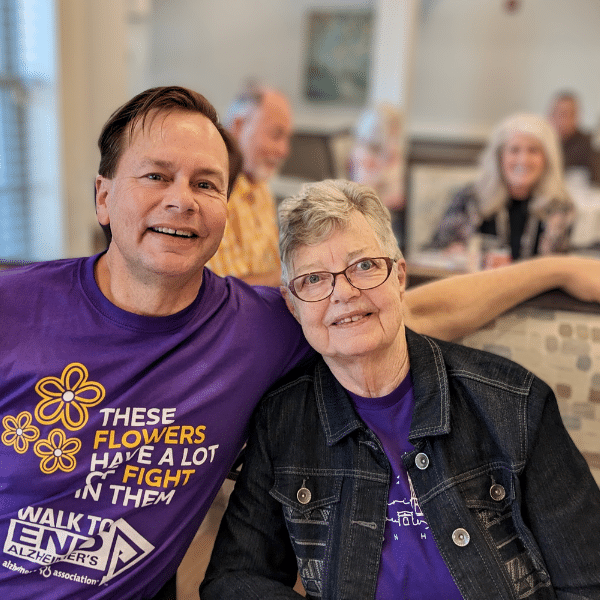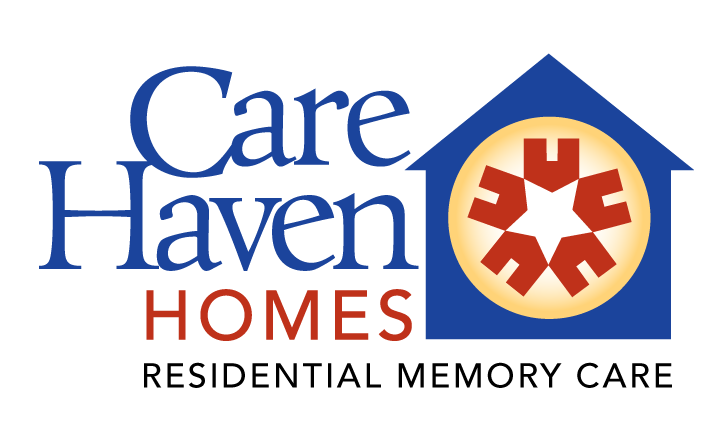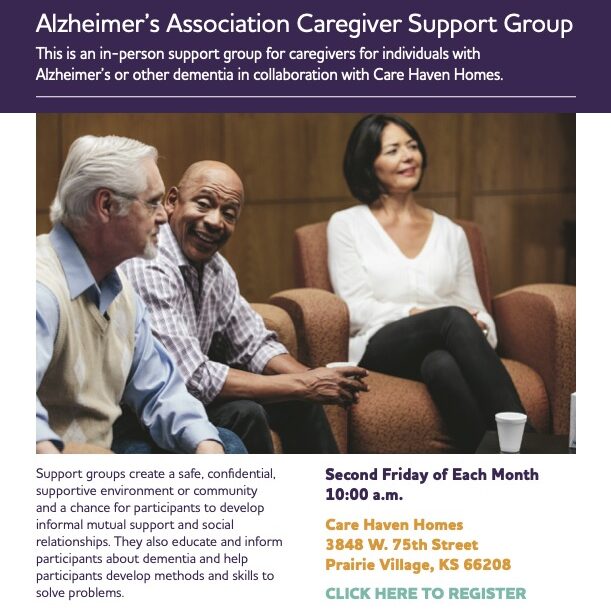Once a loved one settles into a Care Haven home, everyone breathes a sigh of relief. You can rest assured that Mom won’t get lost and Dad will take his meds. Who needs a dementia support group?
However, if you’re like most of us, your caregiving brain soon finds new worries to fill your free time.
- Mom seems happy, but does she do as much as she should?
- Would a new drug therapy delay the progression of Dad’s Alzheimer’s?
- What plans and decisions must I make next, so I can start researching?
- I’m still wrestling with anxiety, fear, anger, grief and guilt. Will I ever find relief?
Once a loved one settles into a Care Haven home, everyone breathes a sigh of relief. You can rest assured that Mom won’t get lost and Dad will take his meds. Who needs a dementia support group?
However, if you’re like most of us, your caregiving brain soon finds new worries to fill your free time.
- Mom seems happy, but does she do as much as she should?
- Would a new drug therapy delay the progression of Dad’s Alzheimer’s?
- What plans and decisions must I make next, so I can start researching?
- I’m still wrestling with anxiety, fear, anger, grief and guilt. Will I ever find relief?
The caregiving dynamo
Driven by an overwhelming sense of responsibility and concern for your loved one, you’ve probably been a force of nature. You likely began your caregiving journey looking for more than a diagnosis. Odds are you read up on promising research studies, progressive care practices, effective medications, cutting-edge alternative treatments — even smart legal and financial strategies. Finally, you assembled the best medical and caregiving team possible.
Yet, even now, you find yourself racing to get in front of the next challenge.
Is it impossible to find time for yourself? Are you exhausted by duties and worries that friends don’t understand? Do stress and isolation occasionally overwhelm you?
Find strength in a dementia support group
Organizations like the Alzheimer’s Association and the Parkinson’s Foundation have created mutual support groups for family caregivers. At regularly-scheduled, confidential meetings, members of these close communities exchange thoughts on caring for a loved one with dementia — and staying mentally and physically healthy through the rough patches.
Consider attending a session. Think you’re in for whining or “war stories?” You’ll be surprised at the strength, comfort and camaraderie in a good group.
Look for the right dementia support group
Don’t settle for anything less than a place where people seem to
- Understand what you’re going through
- Listen without judging and
- Encourage you to find your way.
Look for empathy free of maddening platitudes. And while a support group meeting is a safe place to cry, it’s also the perfect place to smile at the precious (or absurd!) moments you shared with your loved one this month.
Many dementia support groups meet monthly or biweekly throughout the Kansas City area. Generally, trained professionals or former family caregivers lead them. (Courtney Goin facilitates a monthly group in our Prairie Village office. Call her if you’re curious to learn more.)
The support group led by Courtney has allowed me to hear the struggle that other families are having and that we are really not alone. They’ve become family.
– Leon Bauman

The support group led by Courtney has allowed me to hear the struggle that other families are having and that we are really not alone. They’ve become family.
– Leon Bauman

Follow the links below to find a dementia support group meeting at a convenient time and place. If you don’t like the first group you visit, try another. Each has a unique personality. Look for one that suits you!
Alzheimer’s Support Groups: The Alzheimer’s Association’s website features a directory of local support groups. The KU Alzheimer’s Disease Center also sponsors in-person support groups throughout the metro.
Parkinson’s Support Groups: The National Parkinson Foundation Heartland lists Kansas and Missouri support groups on its website.



